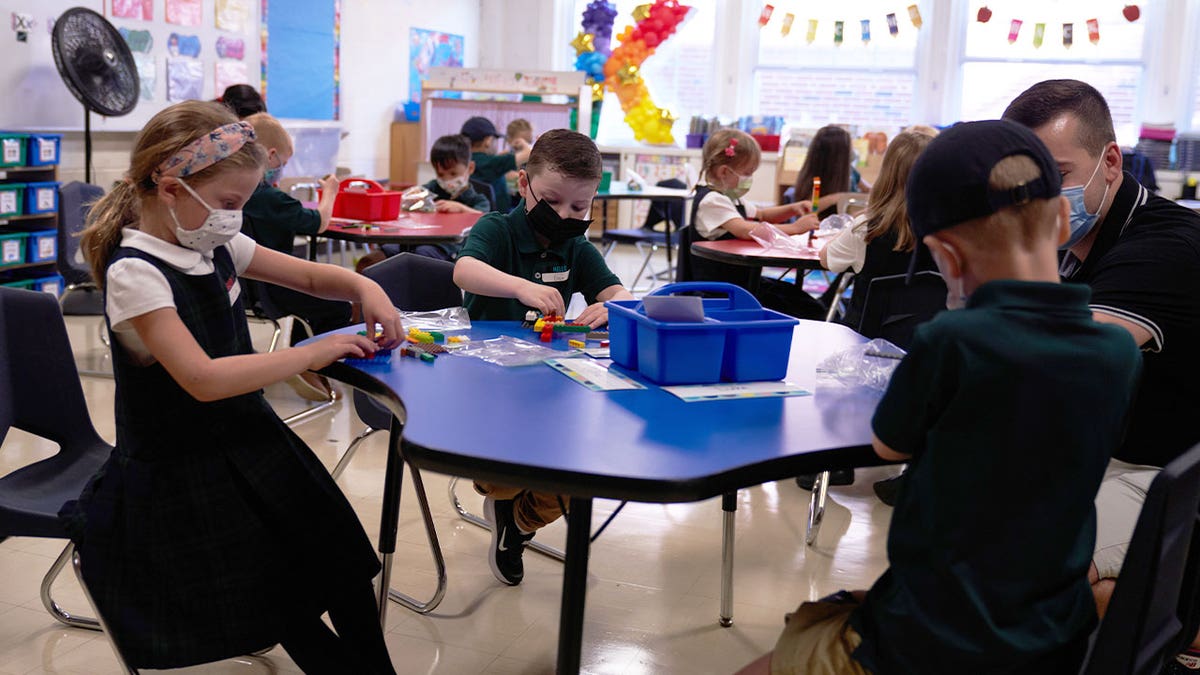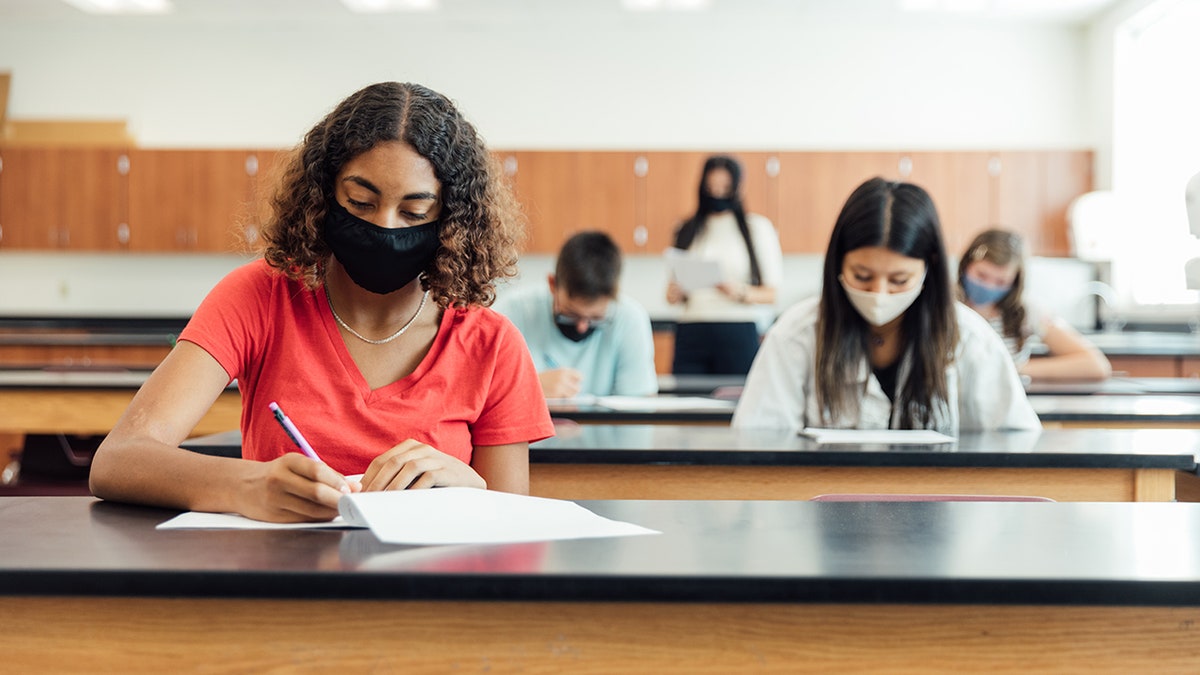Evidence suggests school reopenings followed 'politics' as opposed to 'science-based solutions': Superintendent
Superintendent of Partnership Schools Kathleen Porter-Magee discusses the showdown over reopening schools.
An NPR reporter said that journalists were "too timid" during coverage of school closings and their impact on children during the COVID-19 pandemic.
Reports have found that schoolchildren who were forced to do at-home learning over the past two years struggled both with their grades and mental health. Alexander Russo, creator of The Grade, credited NPR's Anya Kamenetz as having been of the leading reporters to highlight the negative impacts.
"I knew that we didn’t have a scientific consensus" around the need for school closings, Kamenetz recently told Alexander Russo of The Grade, an independent analysis of media coverage of education. "We needed social science expertise, not just medical expertise, to decide what was best."

Classroom with empty wooden desks. (iStock)
Russo said Kamenetz "stands out" among most education journalists for "being willing to reflect and comment publicly about media coverage — hers and others."
"In a recent phone interview, she described herself as having been ‘too timid’ about taking risks involved in field reporting on vulnerable kids most adversely affected by forced homeschooling," Russo wrote. "Most of all, she says that she and other education reporters didn’t ‘talk loudly enough and in enough detail’ about the harms to kids that would likely result from blanked school shutdowns that were often prolonged."

Joseph G. Allen feels masks work, but aren’t necessary for kids. ( Allison Dinner/Bloomberg via Getty Images)
"It was all easy to predict, so we could have been a lot louder," Russo quoted Kamenetz as saying.
She continued, saying reporters should have provided more details on "the large numbers of children who were not attending school at all, the large numbers who were going hungry, and the ones who were potentially unsafe." Part of the reason reporters didn't find so many struggling children, Kamenetz said, is because they lacked "an independent series of community network relationships."
"Reporters need to have those really tight, on-the-ground connections with community groups to find these kids," she said. "And make sure that we know where they are before the next disaster happens."
Some outlets were criticized for focusing too much on the plight of teachers during the pandemic, including Kamenetz's own outlet. Last month, critics hit NPR for the timing of their reporting on how COVID-19 impact student development in a piece entitled, "We asked teachers how their year went. They warned of an exodus to come," saying it was a bit delayed.
"File this in the ever-growing file of things we warned about 2 years ago but were ignored, cancelled, and shunned for," radio host Phil Holloway tweeted.
While the piece spoke of the damage done to student growth, others criticized it for largely focusing on the expected mass exodus of educators.

The potential opening of the Ascent Classical Academy was reportedly discouraged by a teachers union leader. (iStock)
Wisconsin public school teacher James A. Fury said the piece "feeds into the ever-growing (within the profession at least) narrative of teacher-as-martyr."
Russo said Kamenetz often resisted that narrative, instead highlighting "the disastrous effects of prolonged school shutdowns and blanket remote learning." He used her story, "What Parents Can Learn From Child Care Centers That Stayed Open During Lockdowns," which centered on schools and centers created to serve the kids of essential workers in NYC, as an example.
CLICK HERE TO GET THE FOX NEWS APP
Parents of all political stripes have noted the negative consequences of pandemic-related school closings. In addition to slipping grades, 70% of U.S. public schools have reported an increase in students seeking mental health services since the start of the COVID-19 pandemic, according to data released by the National Center for Education Statistics (NCES) within the U.S. Department of Education's Institute of Education Sciences (IES) on June 1.
Teachers unions have been targeted by critics for having had a hand in keeping schools closed. Infamously, the American Federation of Teachers and the National Education Association were discovered to have corresponded with the Centers for Disease Control and Prevention last year to make last-minute changes to school reopening guidance. Responding to the backlash, AFT President Randi Weingarten suggested it was routine procedure.
"The AFT represents 1.7 million educators, healthcare professionals and public employees who spent the last 14 months serving on the front lines of the COVID-19 pandemic. So naturally, we have been in regular touch with the agencies setting policy that affect their work and lives, including the CDC," Weingarten said in a statement to Fox News at the time. "In fact, we contacted the agency more in 2020 during the Trump administration than we have during the Biden administration in 2021 – requesting additional guidance, questioning policy, providing testimony and offering an educator and healthcare worker perspective," she added.










































